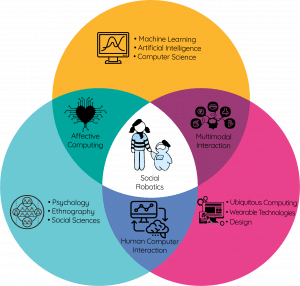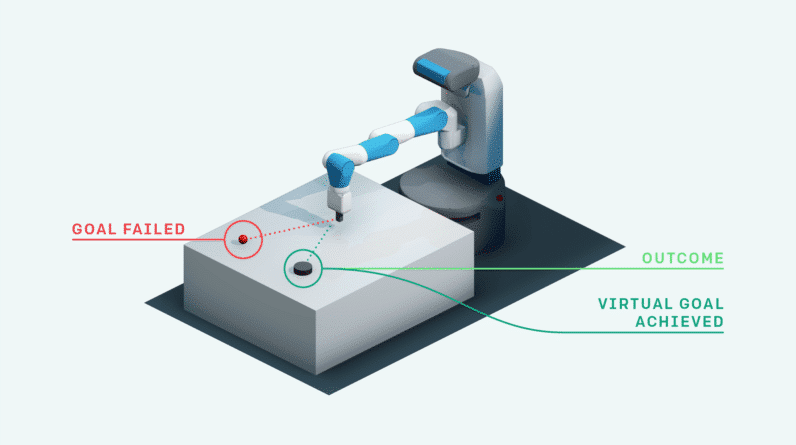In “Chatbots And Beyond: The Evolution Of AI In Customer Service,” explore how Artificial Intelligence (AI) has revolutionized customer service through the development of chatbots. This article delves into the transformative impact of AI, highlighting how chatbots have become virtual assistants, providing efficient and personalized support to customers. Discover the evolution of AI in customer service and how it continues to reshape the way businesses interact with their clients.

The Emergence of Chatbots in Customer Service
Definition of chatbots
Chatbots are computer programs designed to simulate conversation and interact with humans through text or voice-based interfaces. They use artificial intelligence (AI) and natural language processing (NLP) technologies to understand and respond to customer inquiries.
Benefits of using chatbots in customer service
Using chatbots in customer service offers numerous benefits for businesses. Firstly, chatbots can improve response time by providing immediate answers to customer queries, thereby increasing customer satisfaction and reducing waiting times. They also enable 24/7 availability, allowing customers to seek assistance at any time, regardless of business hours.
Additionally, chatbots facilitate personalized customer experiences by using customer data and historical interactions to deliver tailored responses and recommendations. This personalization helps build rapport and loyalty with customers. Moreover, chatbots are cost-effective as they can handle a large volume of inquiries simultaneously, freeing human agents to focus on complex or high-value tasks.
Applications of chatbots in various industries
Chatbots have found applications in a wide range of industries. In e-commerce, chatbots can assist customers with product recommendations, order tracking, and payments. In the banking sector, chatbots can provide account balance information, transfer funds, and answer frequently asked questions about banking services.
Moreover, chatbots can be utilized in the healthcare industry to schedule appointments, provide basic medical advice, and offer mental health support. And in the hospitality sector, chatbots can assist guests with hotel reservations, room service requests, and general information about the hotel.
The Advantages of AI in Customer Service
Improved response time
One of the main advantages of AI in customer service is the improved response time it offers. AI-powered systems, such as chatbots, can instantly analyze and understand customer inquiries, providing immediate and accurate responses. This results in faster query resolution and reduces the need for customers to wait for human assistance.
24/7 availability
AI systems, unlike human agents, do not require rest or breaks. This allows businesses to provide 24/7 customer service support, ensuring that customers can seek assistance whenever they need it, regardless of the time of day or night. This availability enhances customer satisfaction and helps businesses maintain a competitive edge.
Personalized customer experiences
AI technology enables businesses to deliver highly personalized customer experiences. By analyzing customer data and historical interactions, AI systems can identify individual preferences and tailor responses and recommendations accordingly. This personalized approach helps build stronger relationships with customers, leading to increased customer loyalty and retention.
Cost-effectiveness
Implementing AI systems can offer significant cost savings for businesses. AI-powered chatbots can handle a large volume of customer inquiries simultaneously, reducing the need for a large customer service team. This frees up human agents to focus on more complex or high-value tasks, increasing productivity and efficiency. Moreover, AI systems can continuously learn and improve over time, further optimizing resource allocation and reducing operational costs.

The Evolution of AI in Customer Service
From rule-based chatbots to machine learning-powered chatbots
The evolution of AI in customer service can be traced from rule-based chatbots to machine learning-powered chatbots. Rule-based chatbots operate based on predefined rules and patterns, limiting their ability to handle complex queries. However, with advancements in machine learning, chatbots can now analyze vast amounts of data and learn from it, enabling them to understand and respond to a wider range of customer inquiries.
Natural Language Processing advancements
Advancements in Natural Language Processing (NLP) have played a significant role in enhancing the capabilities of AI in customer service. NLP allows AI systems to understand and interpret human language, including slang, colloquialisms, and variations in sentence structure. This enables chatbots to provide more accurate and contextually relevant responses, improving overall customer satisfaction.
Integration of AI with other customer service channels
AI technology has also evolved to integrate with other customer service channels, such as voice-based virtual assistants, email response systems, and social media platforms. This integration enables businesses to provide a seamless omnichannel customer support experience, where customers can interact with AI systems through their preferred channel and receive consistent and personalized assistance.
The rise of voice-based virtual assistants
The emergence of voice-based virtual assistants, such as Amazon’s Alexa and Apple’s Siri, has further expanded the use of AI in customer service. These assistants use speech recognition and natural language understanding to interact with users through voice commands. Voice assistants can perform tasks such as setting reminders, answering questions, and controlling smart home devices, providing a hands-free and convenient customer service experience.
Enhancing Customer Service with AI
Automated self-service
AI-powered systems enable automated self-service options for customers, allowing them to find answers to their queries independently. Self-service options can include AI-driven knowledge bases, FAQs, and interactive troubleshooting guides. By empowering customers to find solutions on their own, businesses can improve customer satisfaction and reduce the workload on their customer service teams.
Seamless omnichannel support
AI technology enables businesses to offer seamless omnichannel support, where customers can switch between different channels while receiving consistent and personalized assistance. AI systems can track customer interactions across channels and maintain a unified customer profile, ensuring that customers receive the same level of service regardless of the channel they choose to communicate through.
Intelligent routing of customer inquiries
AI systems can intelligently route customer inquiries to the most appropriate department or agent based on factors such as expertise, availability, and workload. This routing ensures that customer inquiries are handled by the most suitable resource, reducing response times and improving the quality of service. AI can also assist in categorizing and prioritizing customer inquiries, ensuring efficient and timely resolution.
Predictive analytics for proactive support
By analyzing customer data and historical interactions, AI systems can identify patterns and trends that can help predict customer needs and preferences. This enables businesses to proactively reach out to customers with personalized offers, recommendations, and support, anticipating their needs and enhancing the overall customer experience. Predictive analytics also helps businesses identify and address potential issues before they escalate, minimizing customer dissatisfaction.

Overcoming Challenges in AI Customer Service
Balancing automation and human interaction
While AI can automate many customer service tasks, maintaining a balance between automation and human interaction is crucial. It’s essential to identify which tasks are best suited for AI and which require human touch. Human interaction brings empathy, emotional understanding, and complex problem-solving abilities that AI may struggle with. Striking the right balance ensures optimal customer service experiences.
Ensuring data privacy and security
AI systems rely on customer data to provide personalized experiences, but ensuring data privacy and security is paramount. Businesses must implement robust data protection measures and comply with relevant regulations to safeguard customer information. Transparent communication about data usage and obtaining customer consent are essential to build trust and maintain customer loyalty.
Managing customer expectations
Implementing AI in customer service requires managing customer expectations effectively. It’s important to communicate the capabilities and limitations of AI systems upfront to prevent unrealistic expectations. Educating customers about the role of AI and providing clear guidance on when human assistance is available helps build trust and enhances the overall customer experience.
Addressing ethical concerns
The use of AI in customer service raises ethical concerns related to bias, fairness, and accountability. Businesses must ensure that AI systems are free from biases and treat all customers fairly, regardless of their demographic traits. Additionally, AI systems should be transparent and explainable, allowing customers to understand how decisions are made. Regular monitoring and audits of AI systems help address ethical concerns and ensure compliance with ethical standards.
The Future of AI in Customer Service
Continuous advancements in machine learning and AI technologies
The future of AI in customer service holds exciting possibilities as advancements continue in machine learning and AI technologies. Improvements in natural language understanding, sentiment analysis, and deep learning techniques will enable AI systems to provide even more accurate and contextually relevant responses. AI-powered systems will become increasingly capable of handling complex queries and providing personalized customer experiences.
Collaboration between humans and AI in customer support
The future of AI in customer service is characterized by collaboration between humans and AI. While AI systems excel at routine and repetitive tasks, human agents bring invaluable skills such as empathy, creativity, and critical thinking. The most effective customer support operations will leverage the strengths of both humans and AI, creating a symbiotic relationship that enhances customer satisfaction and loyalty.
Expanding applications of AI in customer relationship management (CRM)
AI technology will continue to expand its applications in customer relationship management (CRM). AI-powered CRM systems can analyze customer data to identify opportunities for cross-selling and upselling, predict customer churn, and optimize marketing strategies. By leveraging AI in CRM, businesses can build stronger customer relationships, drive revenue growth, and deliver personalized experiences at scale.
Integration of AI with Internet of Things (IoT)
The integration of AI with the Internet of Things (IoT) will revolutionize customer service. AI-powered systems can analyze data from IoT devices, such as smart home sensors or wearable devices, to understand customer needs and preferences in real-time. This real-time data analysis enables businesses to offer proactive and personalized customer support, resolving issues before they occur or worsen.

Ethical Considerations in AI Customer Service
Transparency in AI systems
Transparency is of utmost importance in AI customer service. Businesses should clearly communicate when customer interactions involve AI systems and inform customers about data collection and usage. Providing transparency builds trust and allows customers to make informed decisions about how they interact with AI systems.
Avoiding algorithmic biases
AI algorithms are susceptible to biases if trained on biased or unrepresentative data. It is crucial to ensure that AI systems do not discriminate against customers based on their demographic traits. Regular audits and evaluations of AI algorithms for bias help identify and mitigate any biases that may exist.
Ensuring fair treatment of customers
AI systems should treat all customers fairly and equally, regardless of their background or characteristics. Businesses must ensure that AI algorithms and decision-making processes are designed to avoid unfair treatment or discriminatory outcomes. Regular monitoring and audits can help identify and address any issues related to fairness and equal treatment.
Monitoring and accountability
Continuous monitoring and accountability are essential aspects of ethical AI customer service. Regular audits of AI systems help identify any issues, biases, or inappropriate behavior. Establishing accountability frameworks and mechanisms ensures that responsible parties are held accountable for the actions and decisions of AI systems.
The Impact of AI on Customer Service Jobs
Automation of repetitive tasks
AI technology has the potential to automate many repetitive and mundane tasks in customer service, such as answering frequently asked questions or processing basic transactions. This automation frees up human agents to focus on more complex and value-added tasks, such as handling complex queries that require empathy, critical thinking, or problem-solving skills.
Shifting job roles and skill requirements
The introduction of AI in customer service may lead to shifting job roles and skill requirements. While some routine tasks may be automated, the demand for jobs requiring human skills, such as emotional intelligence, creativity, and complex problem-solving, will increase. Customer service agents may need to acquire new skills to adapt to the changing landscape, including AI literacy and the ability to collaborate effectively with AI systems.
Creating new job opportunities
The adoption of AI in customer service also creates new job opportunities. Businesses require AI developers, data scientists, and AI trainers to build and maintain AI systems. Additionally, there is a need for AI specialists who can work alongside customer service agents to optimize AI performance and ensure seamless human-AI collaboration.
Human-AI collaboration in the work environment
The impact of AI on customer service jobs emphasizes the importance of human-AI collaboration in the work environment. AI systems can assist human agents by providing real-time information, suggestions, and recommendations. Human agents, on the other hand, bring empathy and critical thinking, complementing AI capabilities. The collaborative approach ensures the delivery of high-quality and personalized customer service.

Adopting AI in Customer Service Strategies
Identifying customer pain points
To adopt AI effectively in customer service strategies, it’s crucial to identify customer pain points and areas where AI can provide value. Conducting customer surveys, analyzing customer feedback, and studying customer behavior can help businesses understand specific pain points that can be addressed through AI solutions. This enables targeted implementation and enhances the overall customer experience.
Choosing the right AI technology
Selecting the appropriate AI technology is vital for successful adoption in customer service. Businesses should evaluate different AI solutions based on their specific requirements, scalability, ease of integration, and cost-effectiveness. Testing pilot projects and conducting proof-of-concept experiments can help determine which AI technology aligns best with the organization’s goals and objectives.
Planning for integration and implementation
Integrating AI into existing customer service infrastructure requires careful planning and execution. A comprehensive implementation plan should include considerations for data management, system integration, security, and training. Collaboration between IT departments, customer service teams, and AI experts is essential to ensure a smooth and successful integration process.
Employee training and organizational change management
Training plays a critical role in the successful adoption of AI in customer service. Businesses should invest in training programs to equip their employees with the necessary skills to work alongside AI systems effectively. Additionally, organizational change management strategies should be implemented to ensure employee buy-in, foster a positive mindset towards AI, and address any concerns or resistance to change.
Success Stories of AI in Customer Service
Case studies of companies leveraging AI successfully
Numerous companies have successfully leveraged AI in customer service to improve customer experiences. For example, Amazon uses AI-powered chatbots to provide instant support and personalized recommendations to customers. The chatbots can understand natural language queries and provide accurate responses, enhancing customer satisfaction.
Another success story is Netflix, which uses AI algorithms to analyze user preferences and behavior to recommend personalized content. By analyzing millions of data points, Netflix’s AI technology enables a highly tailored user experience, leading to increased customer engagement and retention.
Key outcomes and benefits achieved
Companies leveraging AI in customer service have achieved notable outcomes and benefits. These include improved customer satisfaction, reduced response times, increased customer loyalty, and cost savings through automation. AI systems can handle a large volume of inquiries simultaneously, allowing businesses to scale their customer service operations efficiently.
Lessons learned and best practices
To achieve success with AI in customer service, companies have learned valuable lessons and best practices. Building a solid foundation of clean and reliable data is crucial for accurate AI performance. Regular monitoring and audits of AI systems help ensure the fairness and transparency of AI algorithms. Additionally, companies have realized the importance of maintaining a balance between human interaction and automation, ensuring optimal customer service experiences.
As AI continues to evolve and advance, businesses must stay informed about the latest technologies and best practices to leverage the full potential of AI in customer service. By embracing AI strategically and ethically, businesses can unlock new opportunities to enhance customer satisfaction, improve operational efficiency, and drive business growth.






